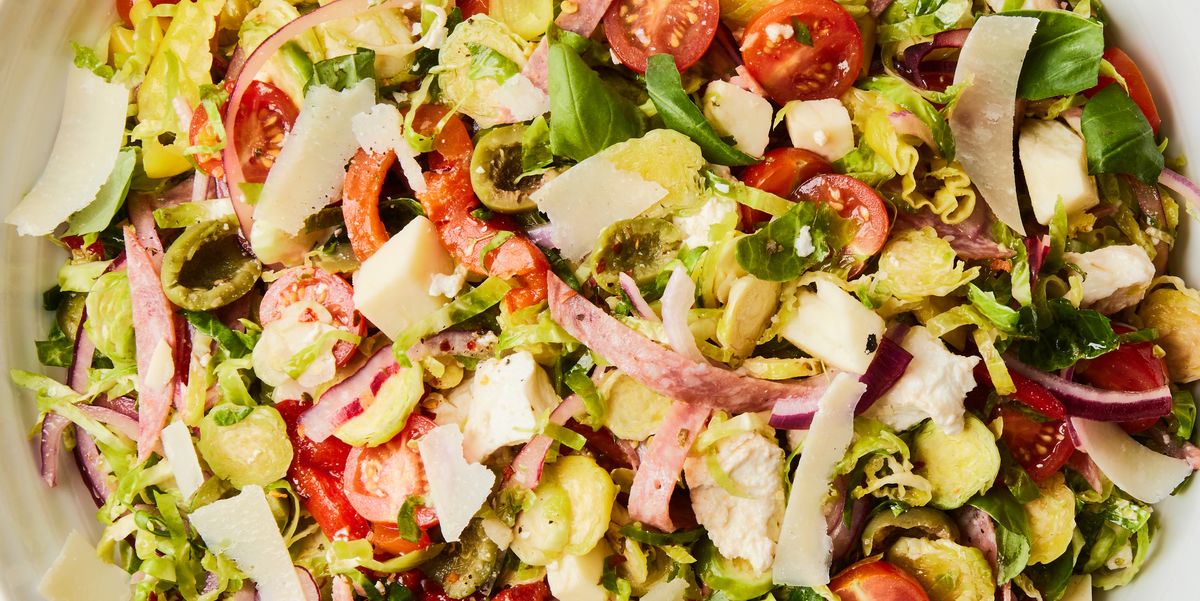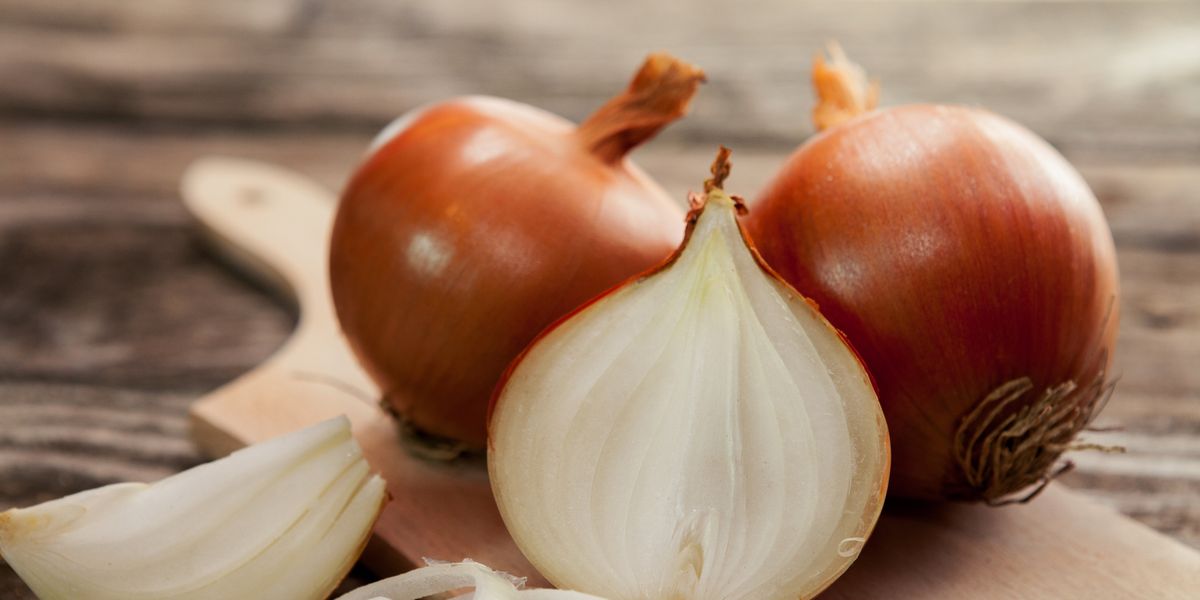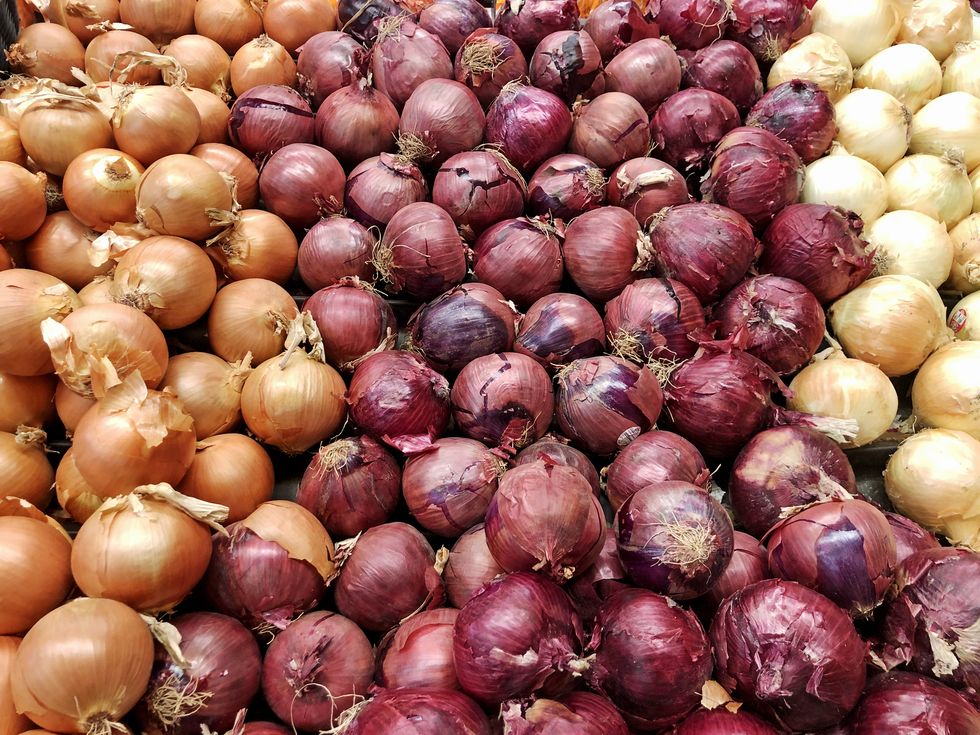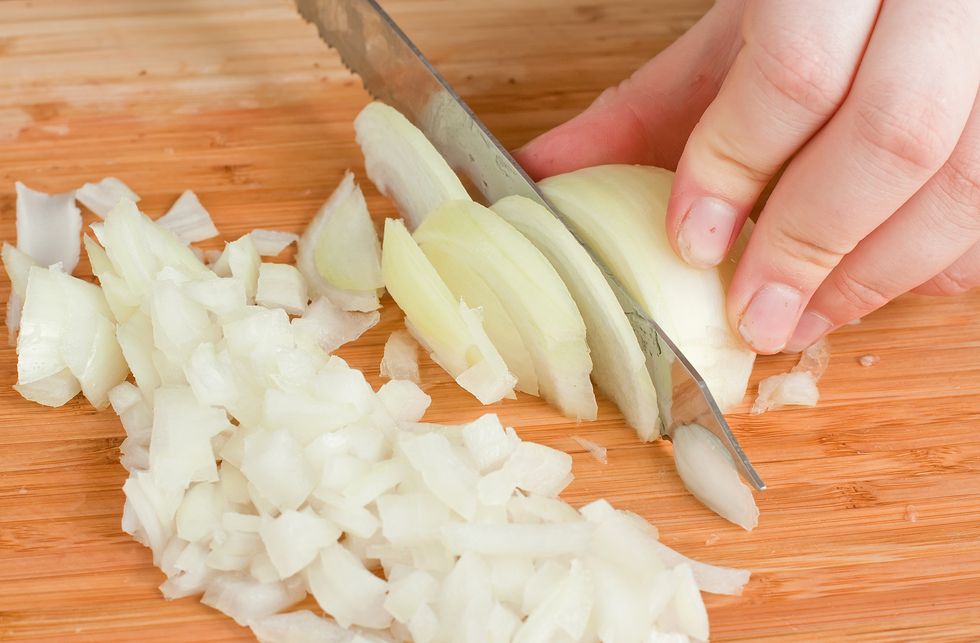When it comes to building flavor in most recipes, we can thank onions for doing the heavy lifting. Whether you’re building an aromatic base for a soup or stew, drawing out their natural sweetness through caramelization, or pickling them for a bright and crisp condiment, onions bring a lot to the table.
And from a practical standpoint, keeping onions in your kitchen is a no-brainer. They’re affordable and can last in your pantry for a long time. However, there’s one drawback (and it’s a big one): they make us cry.
It’s an inevitable inconvenience. Regardless if we’re working with a single onion or several, we always end up tearing up over the cutting board. The stinging, burning sensation is so harsh and unpleasant that it makes chopping onions one of our least favorite kitchen tasks.
But what exactly is it about onions that makes us cry, anyway? And are there any ways we can avoid the dreaded onion tears? We chatted with Rosemary Trout, DHSc, a food scientist and professor at Drexel University, to peel back the layers about all things onions.
Why Do Onions Make You Cry?
Think of onions as the skunks of the vegetable world: they only release their pungent odor as a defense mechanism. When left alone, onions mind their own business. But onions and other foods in the allium family (like shallots, leeks, and garlic) have a biochemical response called a lachrymatory factor that repels animal predators, microbes, and humans who just trying to make dinner.
Since onions are root vegetables, they’re able to extract sulfur from the soil and create these protective lacrimator compounds. “When we cut into onions, these compounds mix with enzymes stored separately in the intact onion, and form volatile chemicals,” says Trout.
These chemicals, namely hydrogen sulfide, sulfur dioxide, and sulfuric acid, can be dangerous if we’re exposed to them in high concentrations. But don’t freak out: cutting an onion doesn’t release enough of these chemicals to pose a serious health risk. Instead, they just make us cry.
The chemicals in onions “irritate sensory cells in our eyes, nose, throat and mouth, sending pain signals to our brain and ultimately making us cry in order to wash out the irritating chemicals from our eyes,” says Trout.
Do Some Onions Make You Cry More Than Others?
Most, if not all, alliums have the lachrymator factor that can induce crying—but in varying degrees. Mincing garlic obviously does not make you tear up as much as cutting onions does. But what about different varieties of onions? Do some onions make you cry more than others?
The answer is yes. According to Trout, red and yellow onions run the highest risk of onion tears because of their heightened sulfur concentrations. And those who want to minimize crying over the cutting board are better off choosing sweeter onions like Vidalias. They “have less of an effect because of a lower concentration of sulfur,” says Trout, “but it’s not completely eliminated.”
How Can You Avoid Onion Tears?
Choosing the right onion is a good start. But what other techniques and tricks can you use to avoid crying while cutting onions? If you’ve ever attempted to minimize the tears, you’ve likely heard of a few unconventional hacks. Some online sources suggest keeping a glass of water or a lit candle nearby. One of the most popular tips involves holding a wooden spoon in your mouth.
We’re sorry to break the news: most of these hacks don’t do much to help. “Submerging onions in icy cold water for 30 minutes may slow the reaction down a bit, but it’s hard to avoid the tears all together,” Trout says. And when it comes to chewing on utensils, her advice couldn’t be clearer: “Don’t bite your spoons!”
We may never be able to prevent onion-induced crying altogether. But, the biggest factor than can make or break your onion experience isn’t the allium itself—it’s your knife. Think of it like using a razor. Just like a dull blade can cause more irritation to your skin than a sharp one, a dull kitchen knife is generally much more abrasive.
Instead of one clean cut with a sharp knife, the cuts from a dull blade will trigger more of an onion’s natural defense mechanism and release more of the chemicals that make you cry. On top of that, it takes longer to accomplish chopping tasks with a dull knife—a.k.a. you’re exposed to these crying chemicals for longer. So if you needed motivation to get your chef’s knife sharpened, this is it.





















Leave a Reply